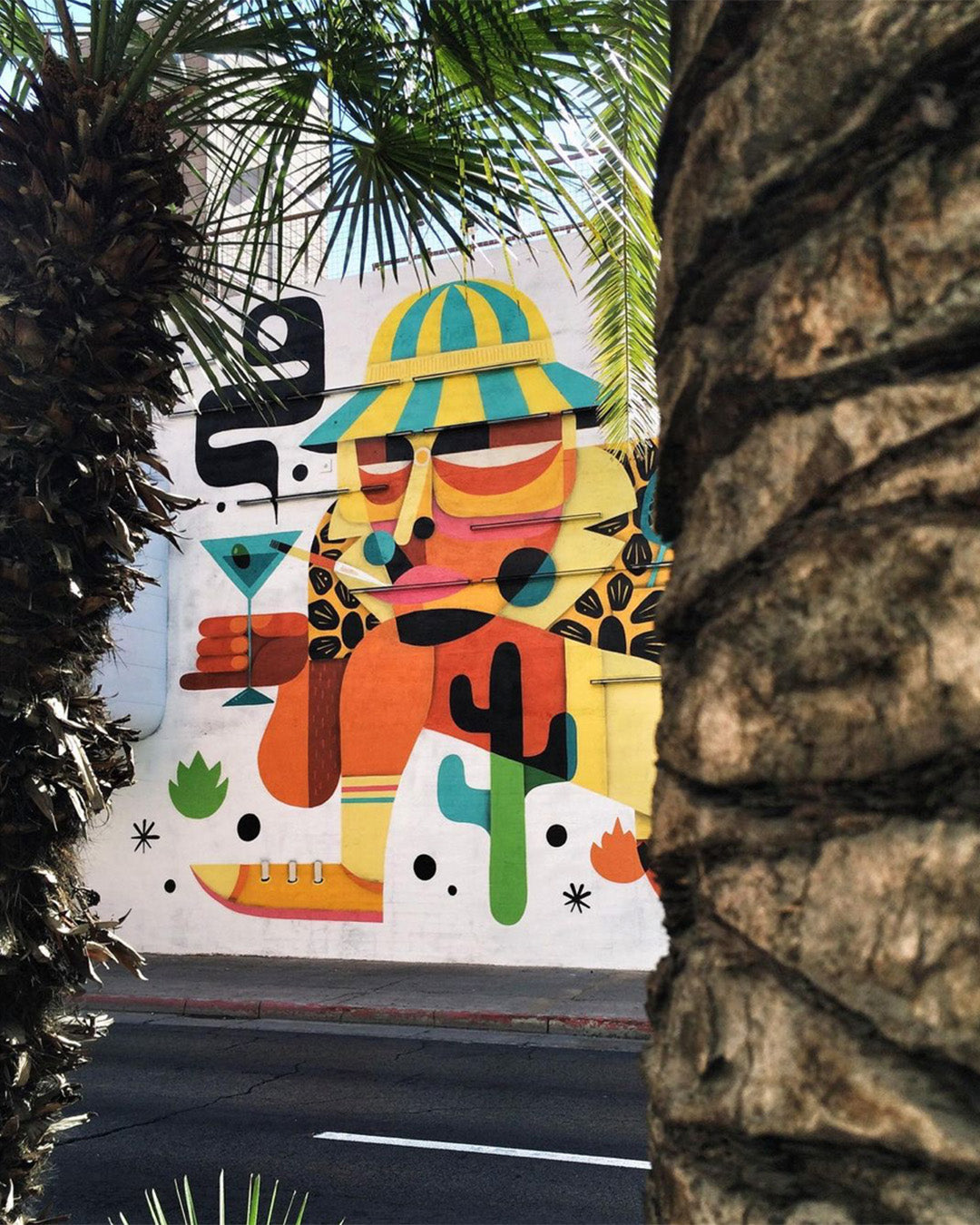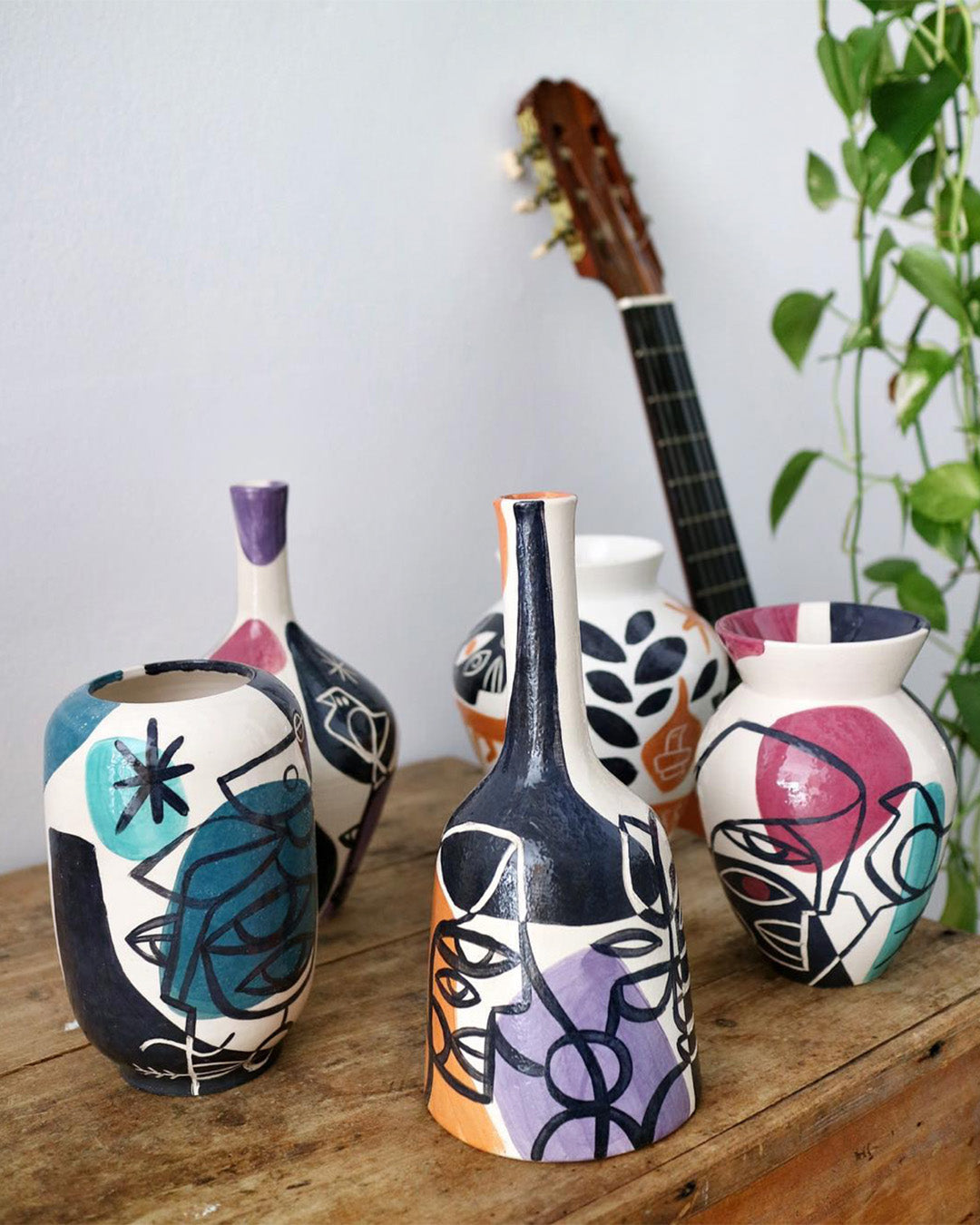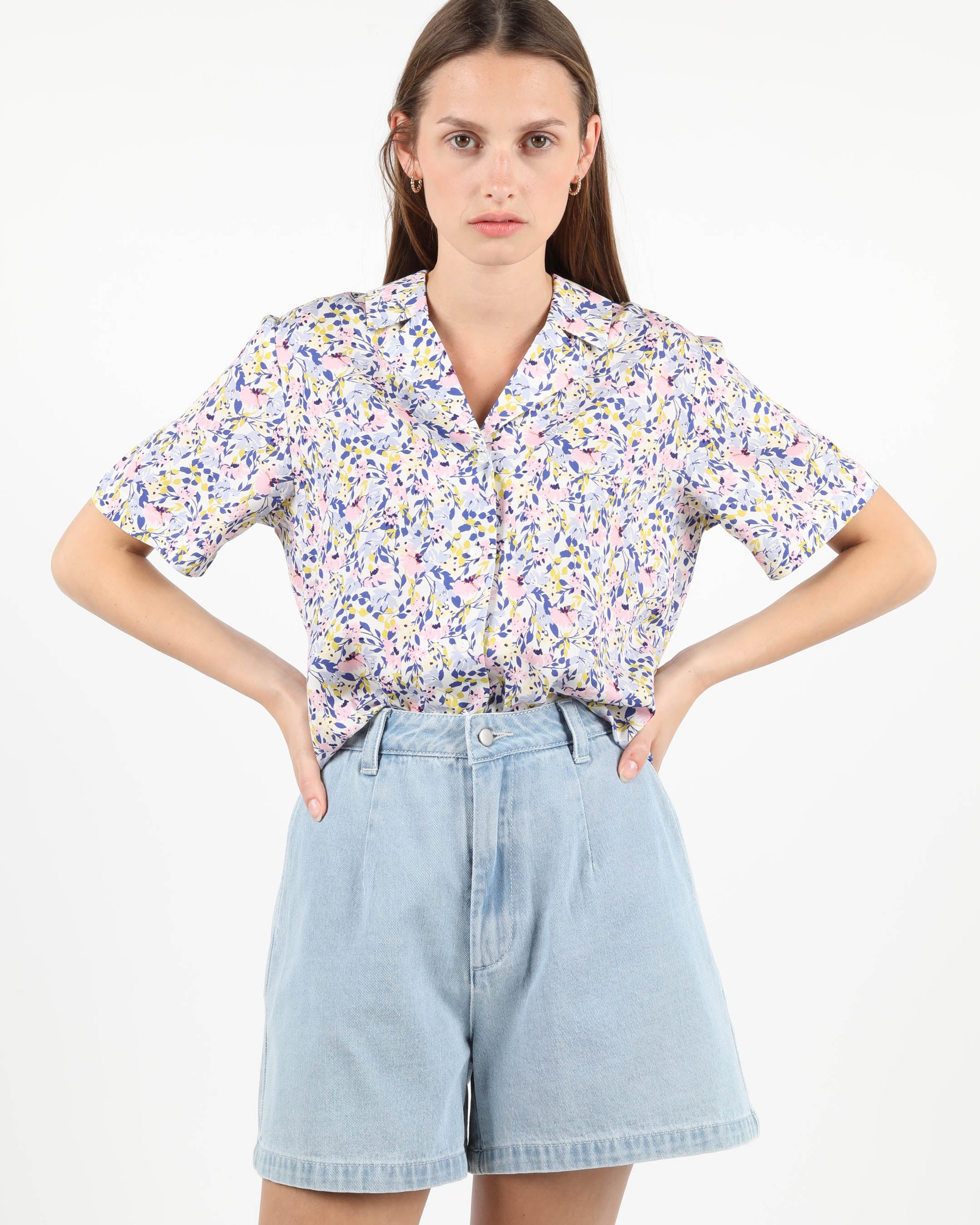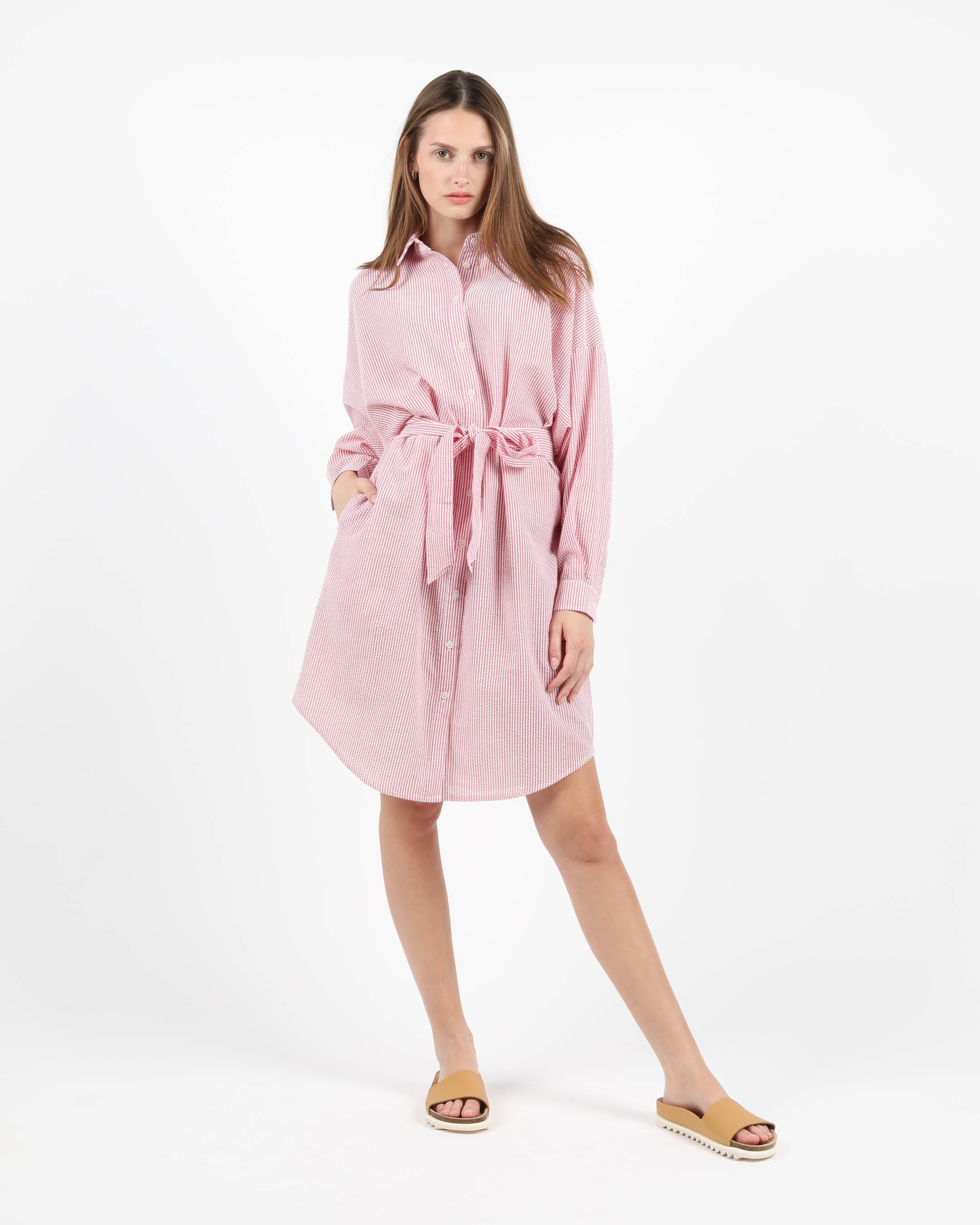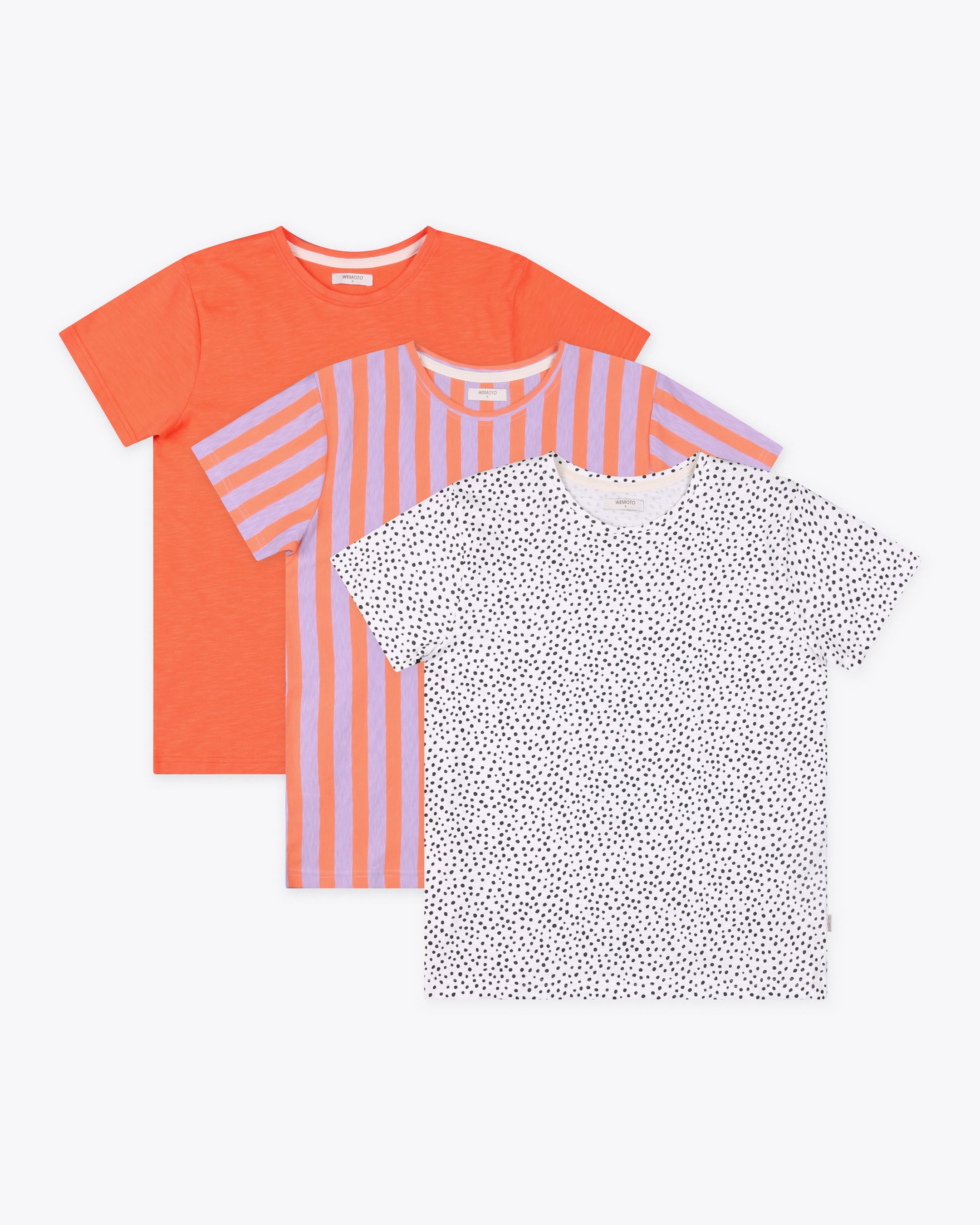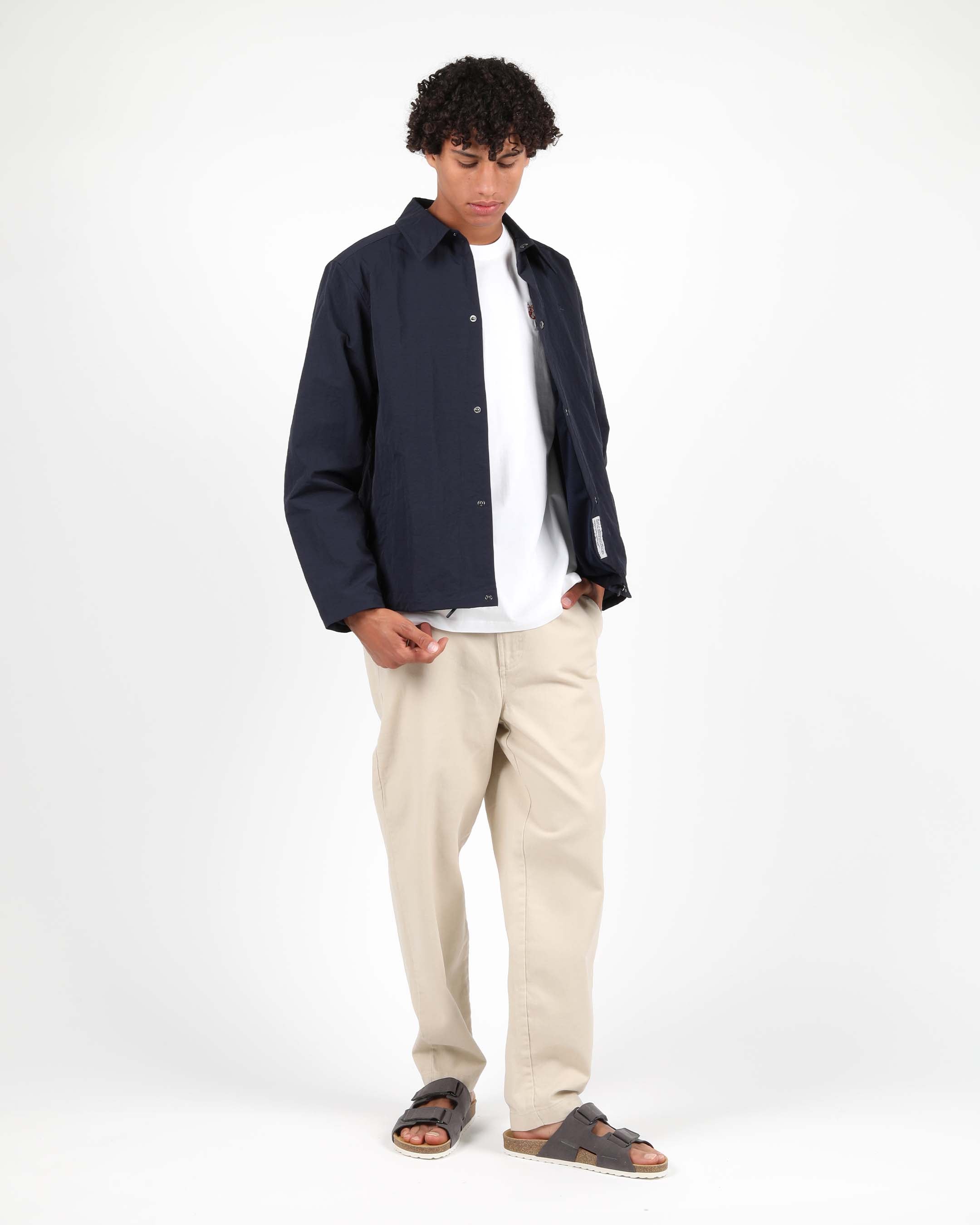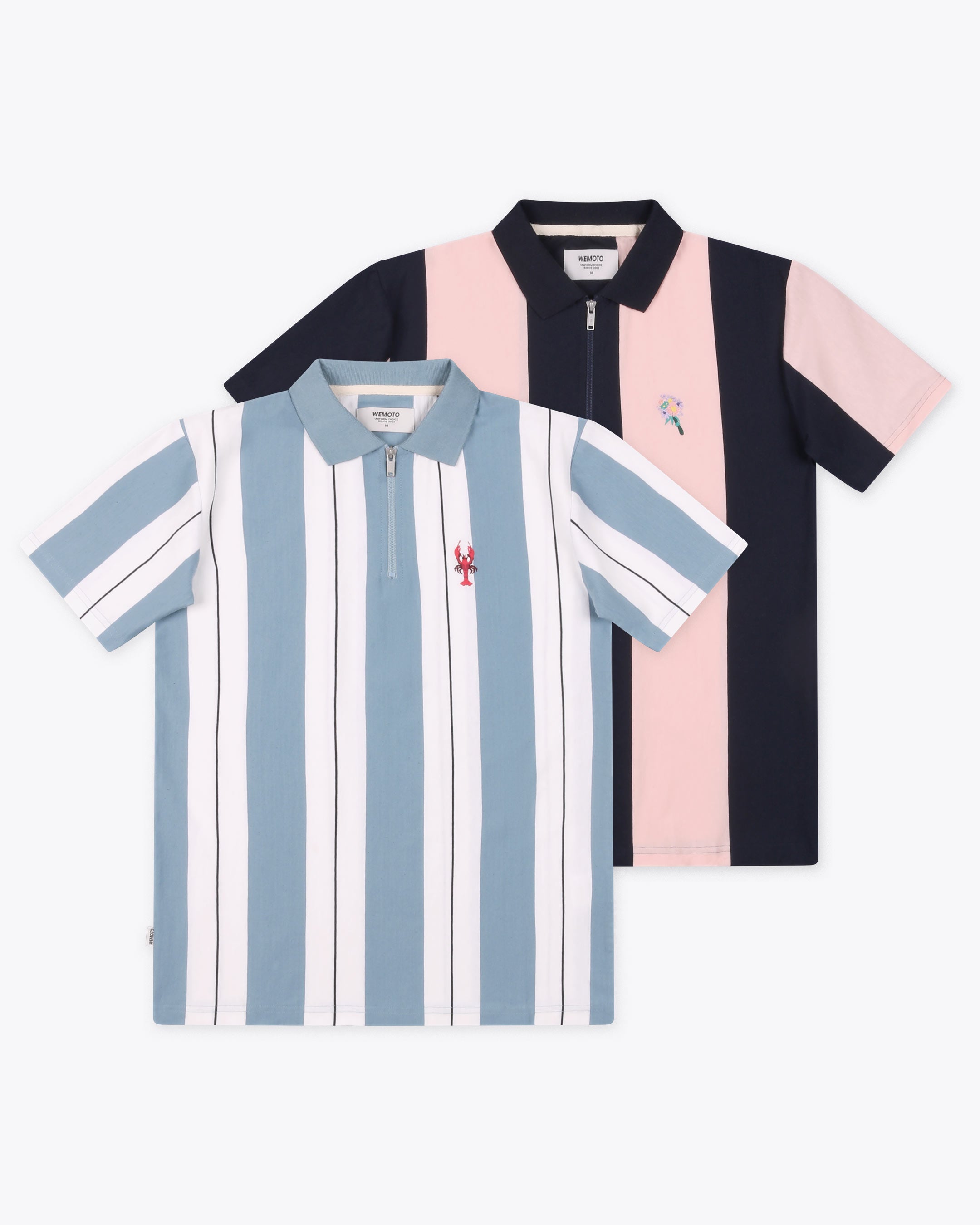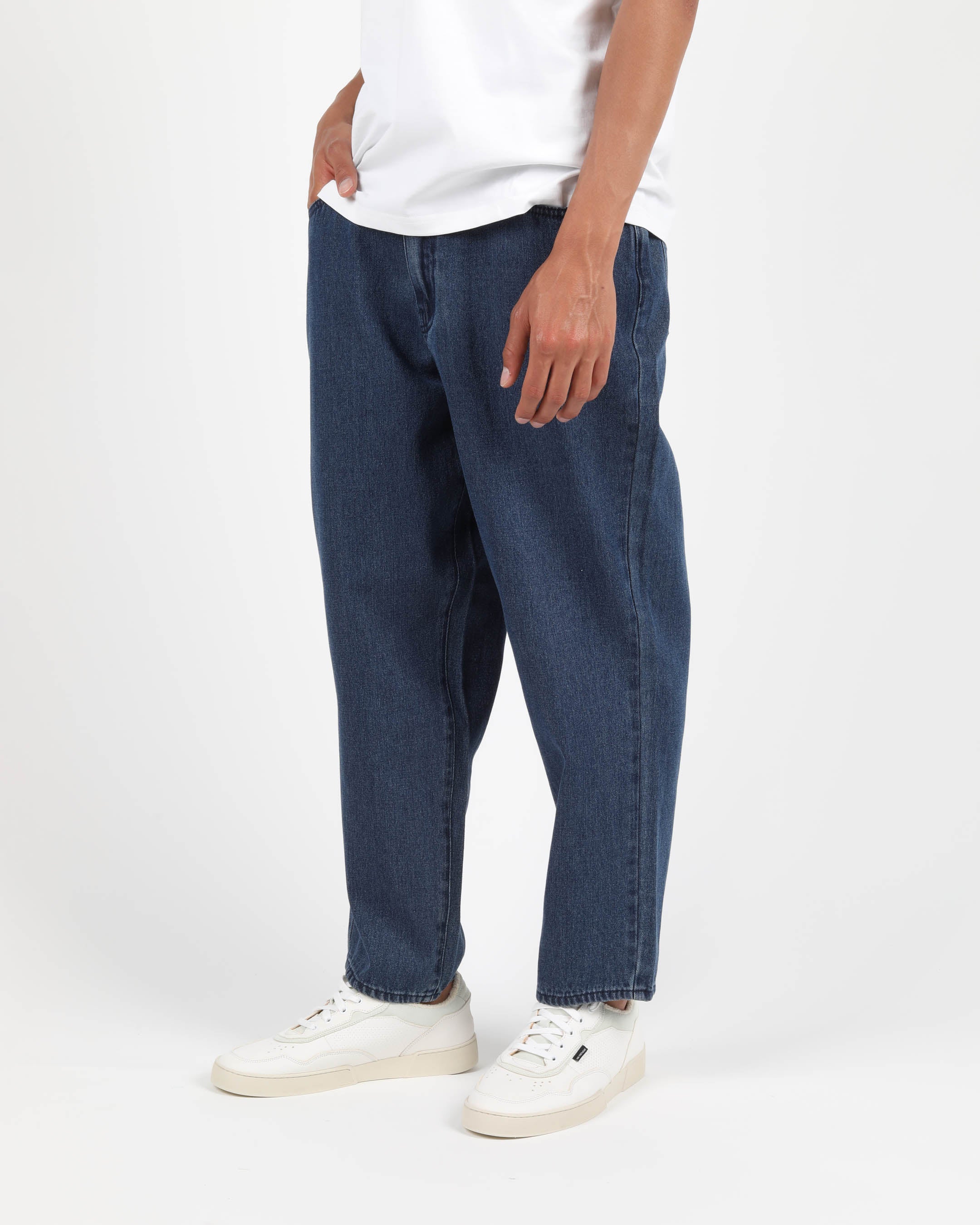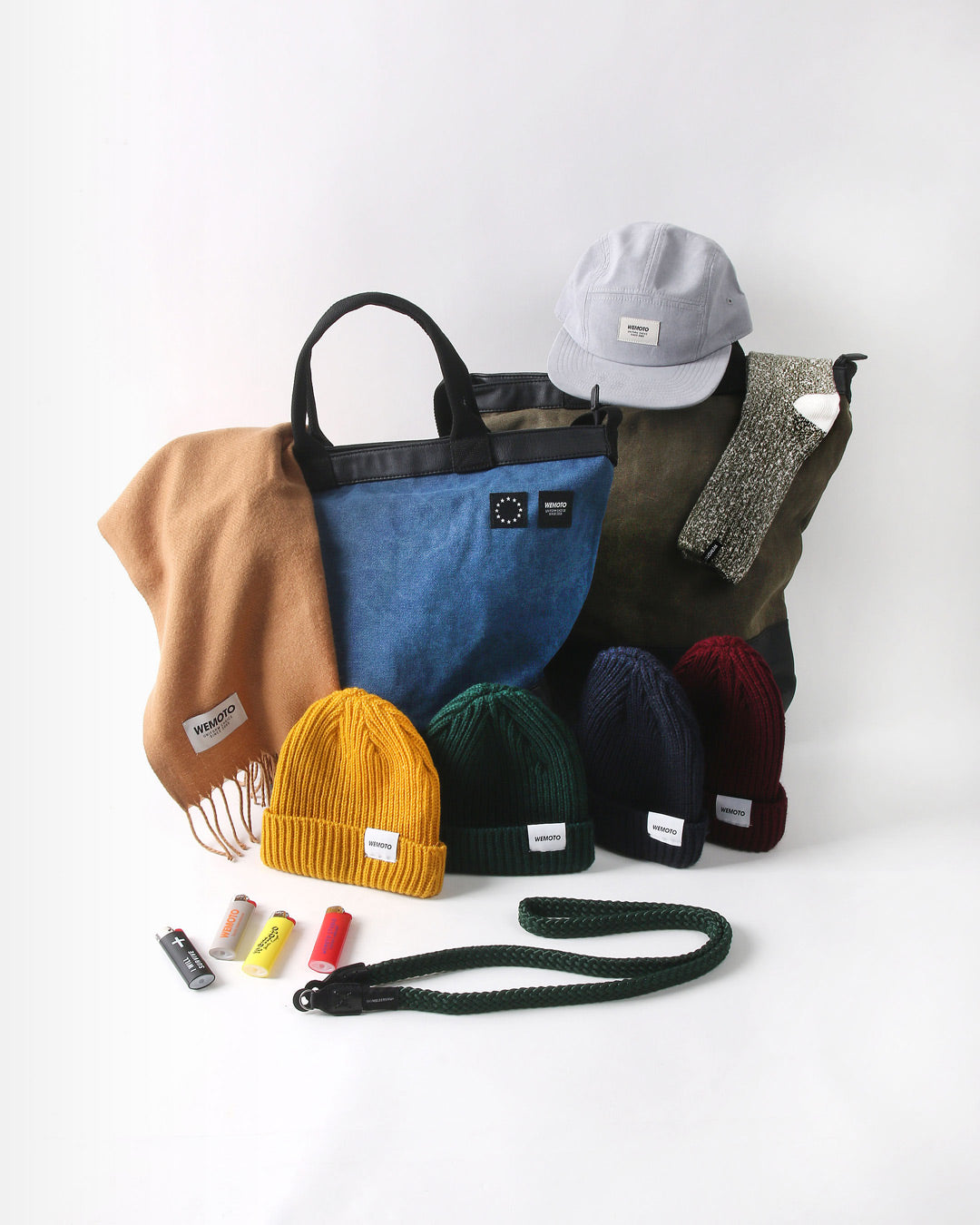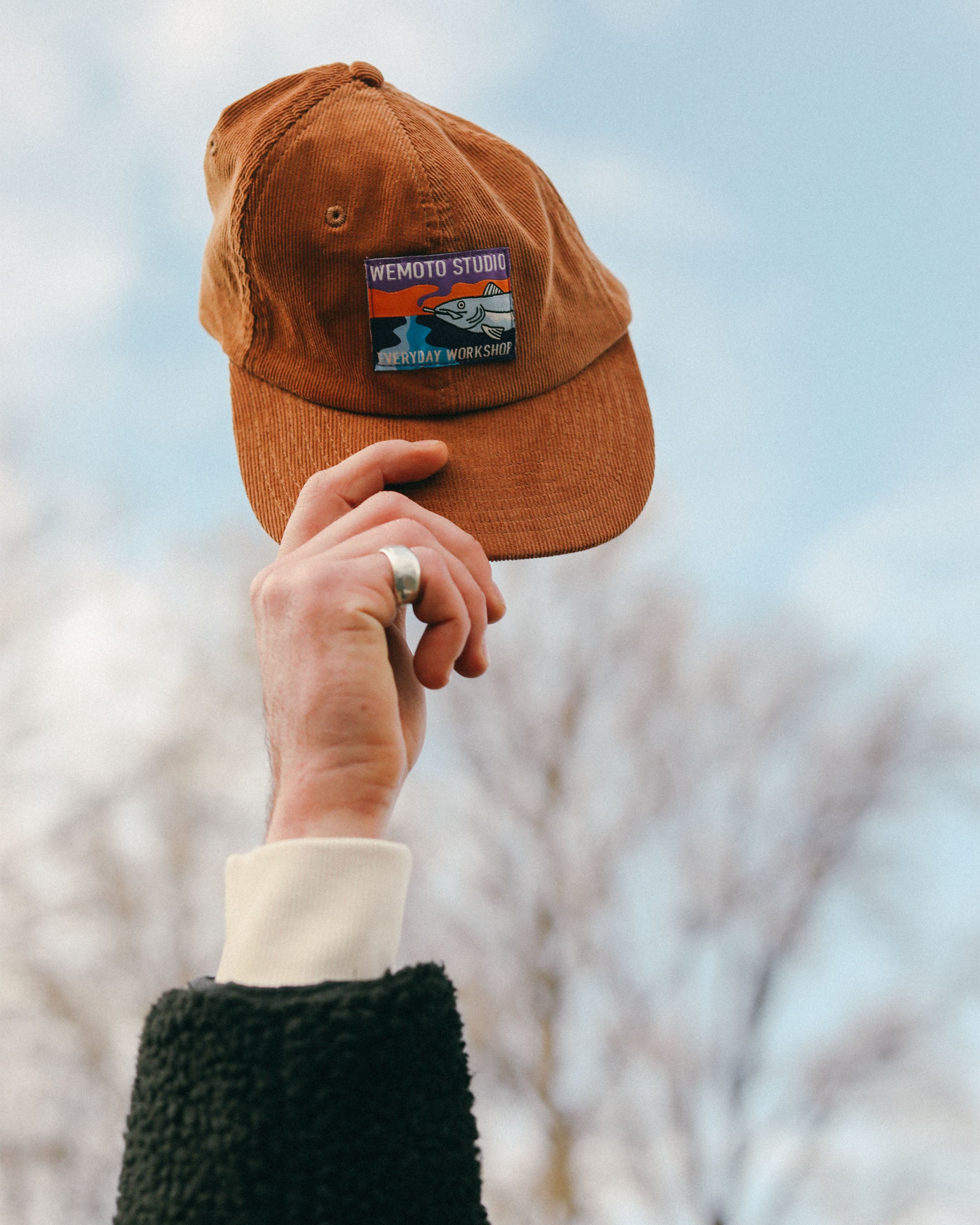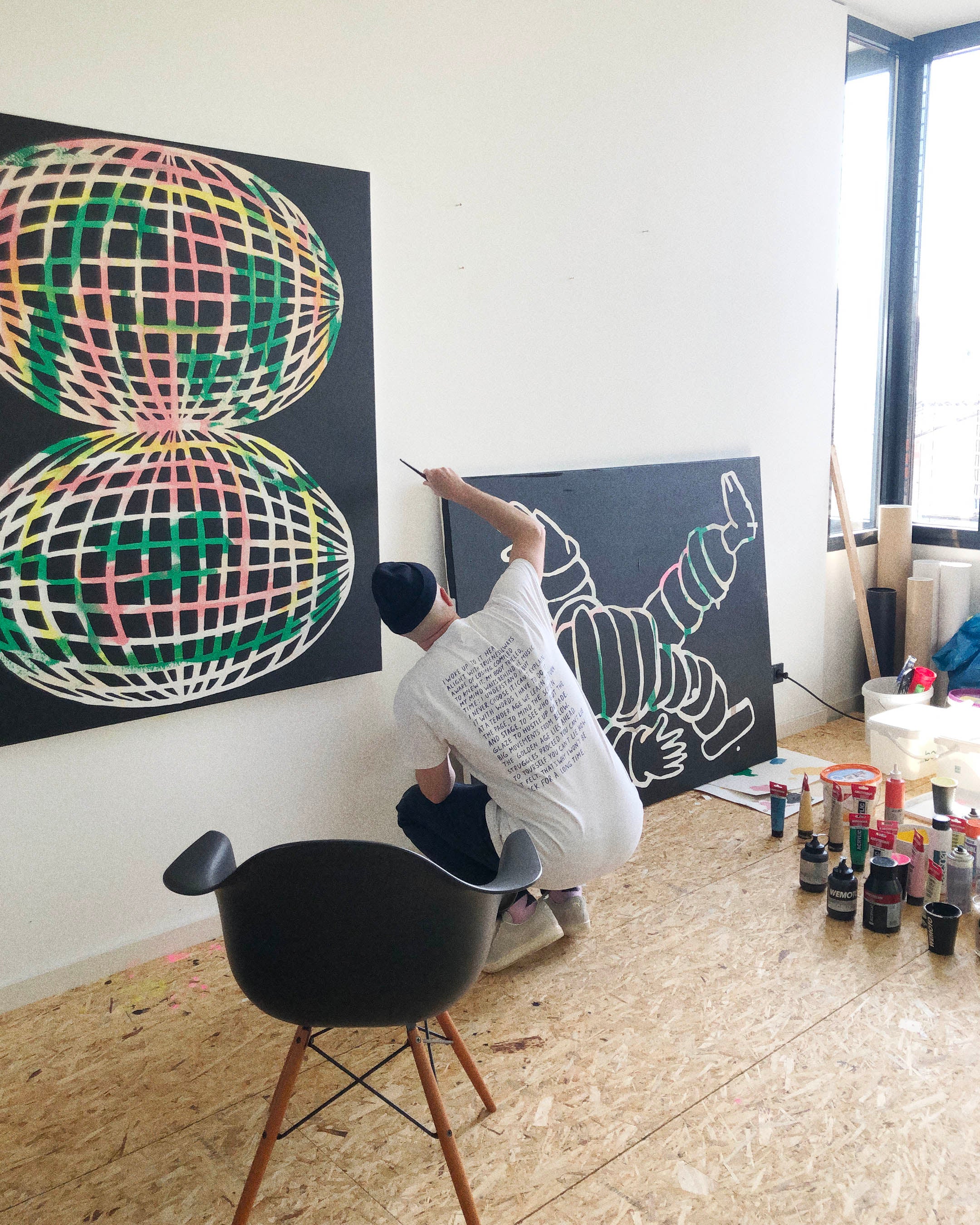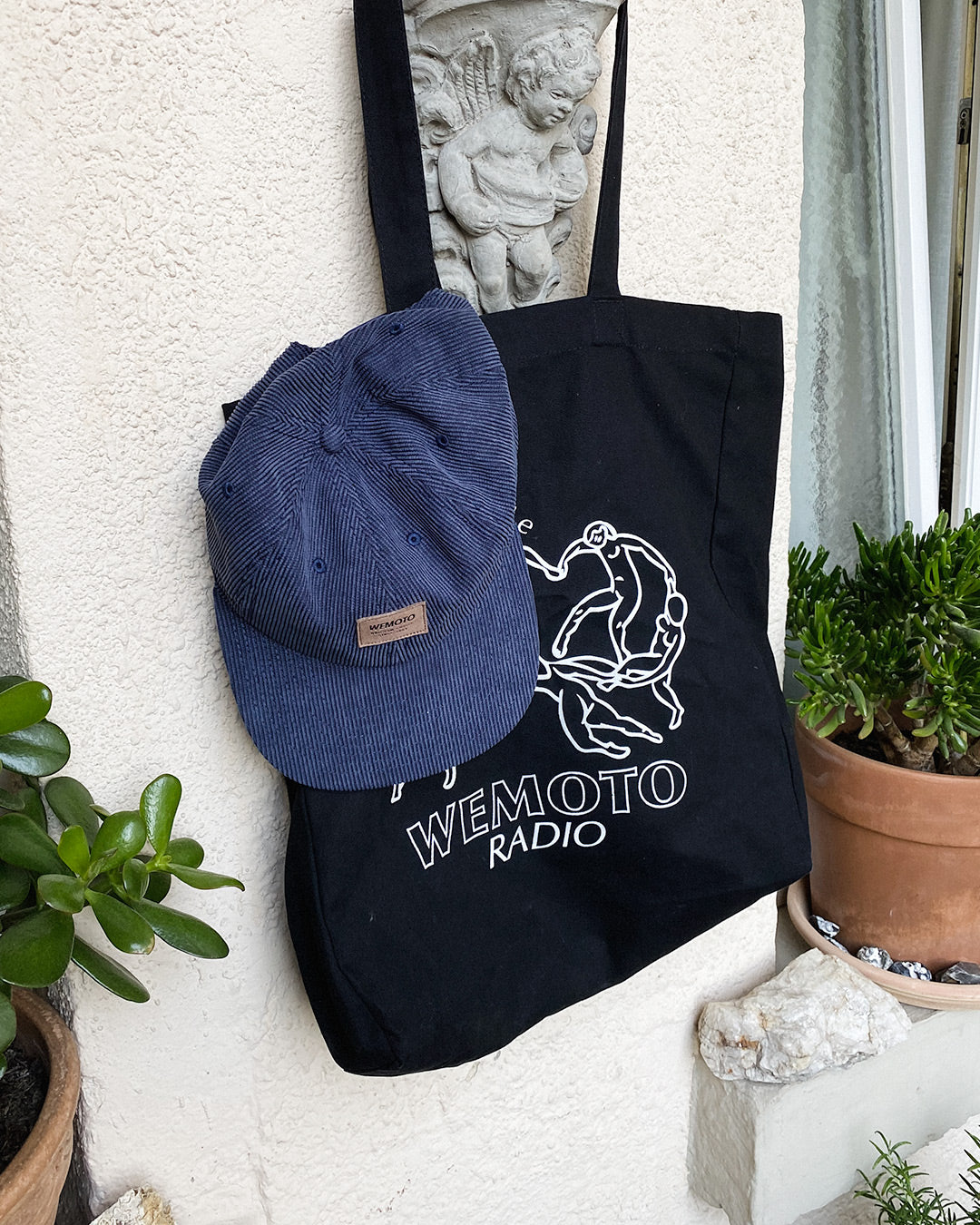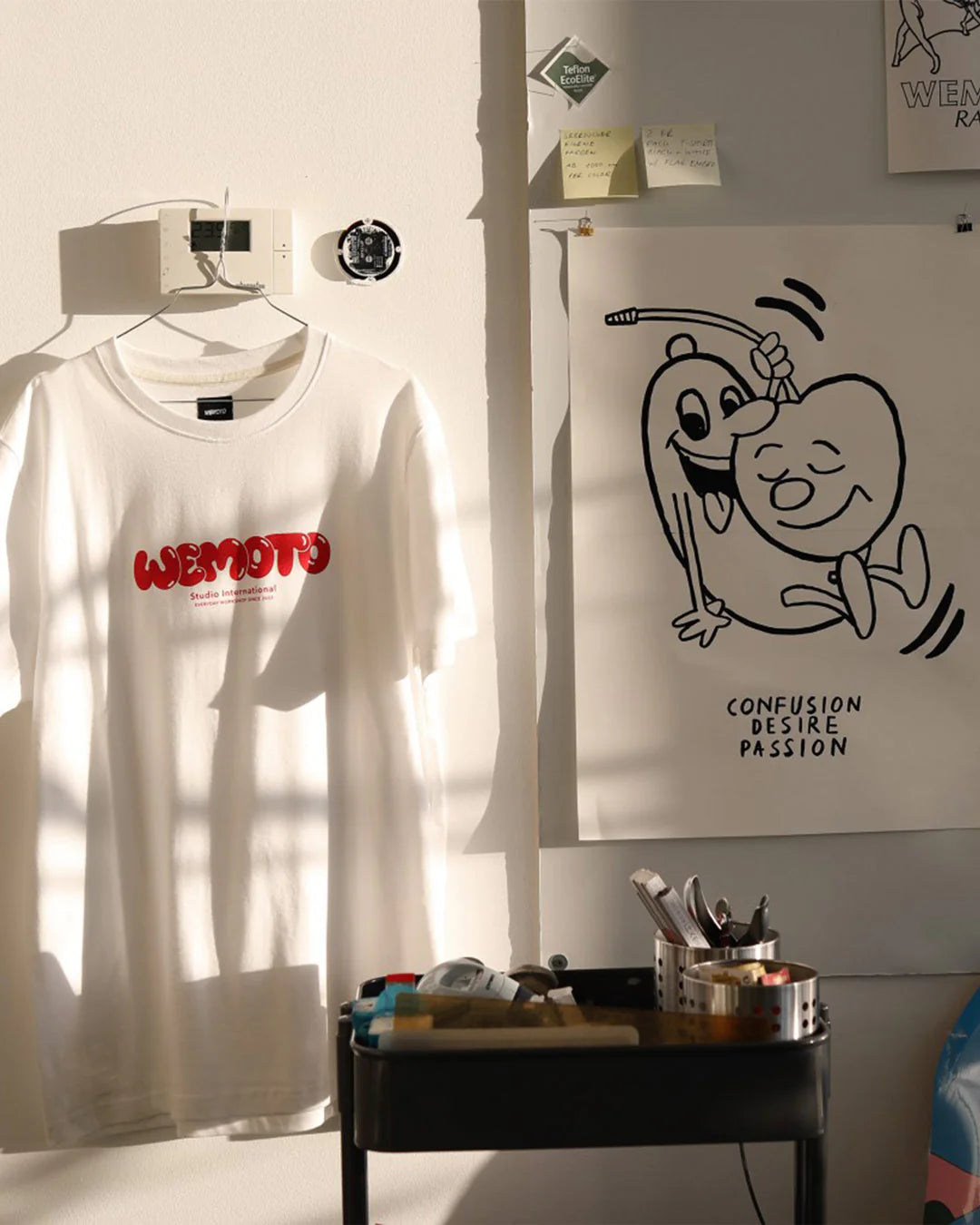„I [...] apply those terms to my work nowadays: creating mystery, finding balance in colors, throwing questions and very important, having fun.“
Wemoto Artist Series with
Ruben Sanchez for Spring & Summer 2022
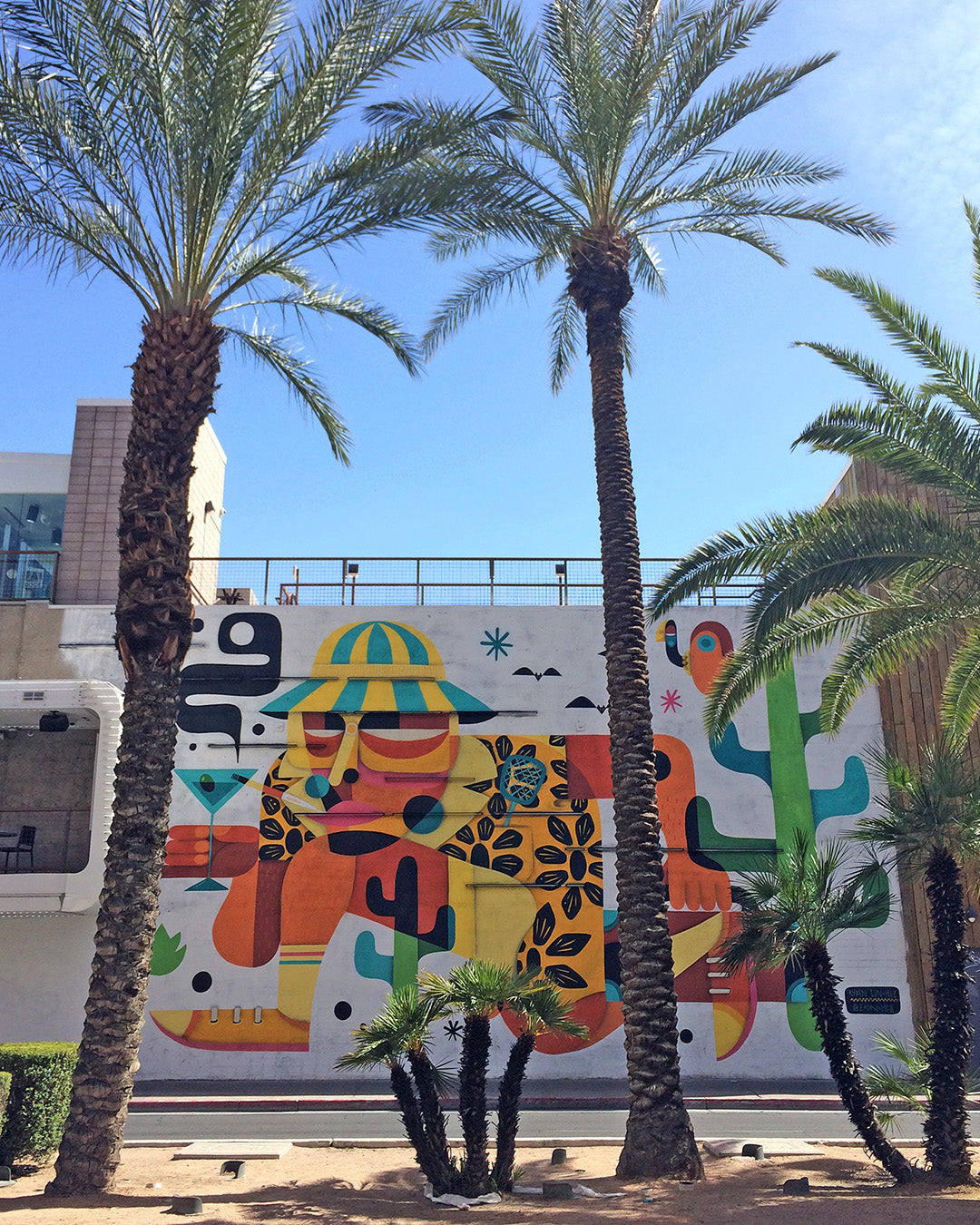
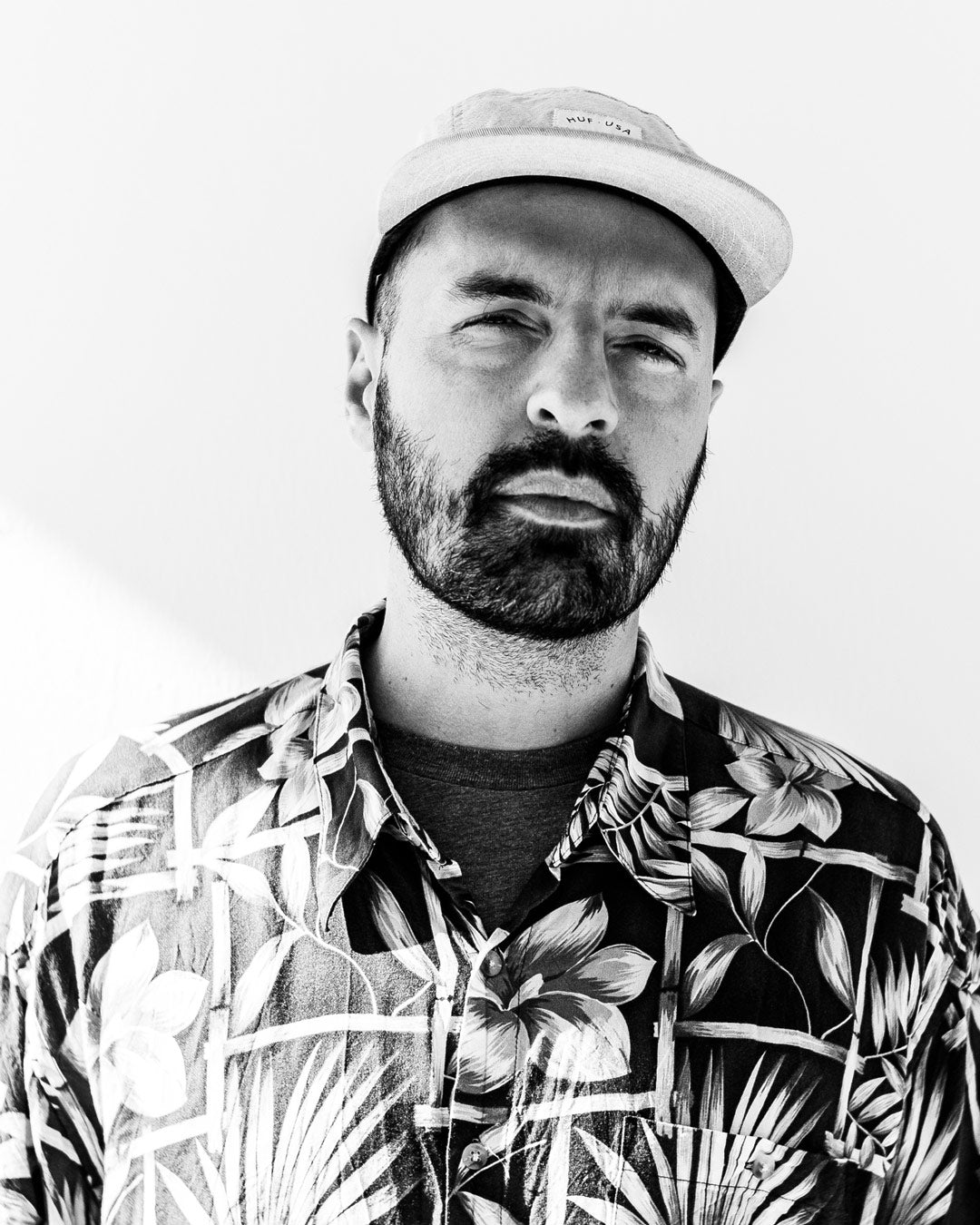
Born and raised in Madrid, adopted by Barcelona and Dubai in the past years and currently living in Badalona, Spain, Ruben Sanchez’ works are limitless in possibilities and locations and they can be found all around the globe as a part of art festivals, humanitarian projects or international exhibitions but mostly as any kind of ‘uncommissioned’ works. Vibrant color palettes, asymmetry and lack of perfect proportions are the ingredients of a game where you are challenged to depict Ruben’s messages. A personal style where visual balance, chain reactions and connectivity flirts with cubism and abstraction. A Mediterranean journey with no destination.
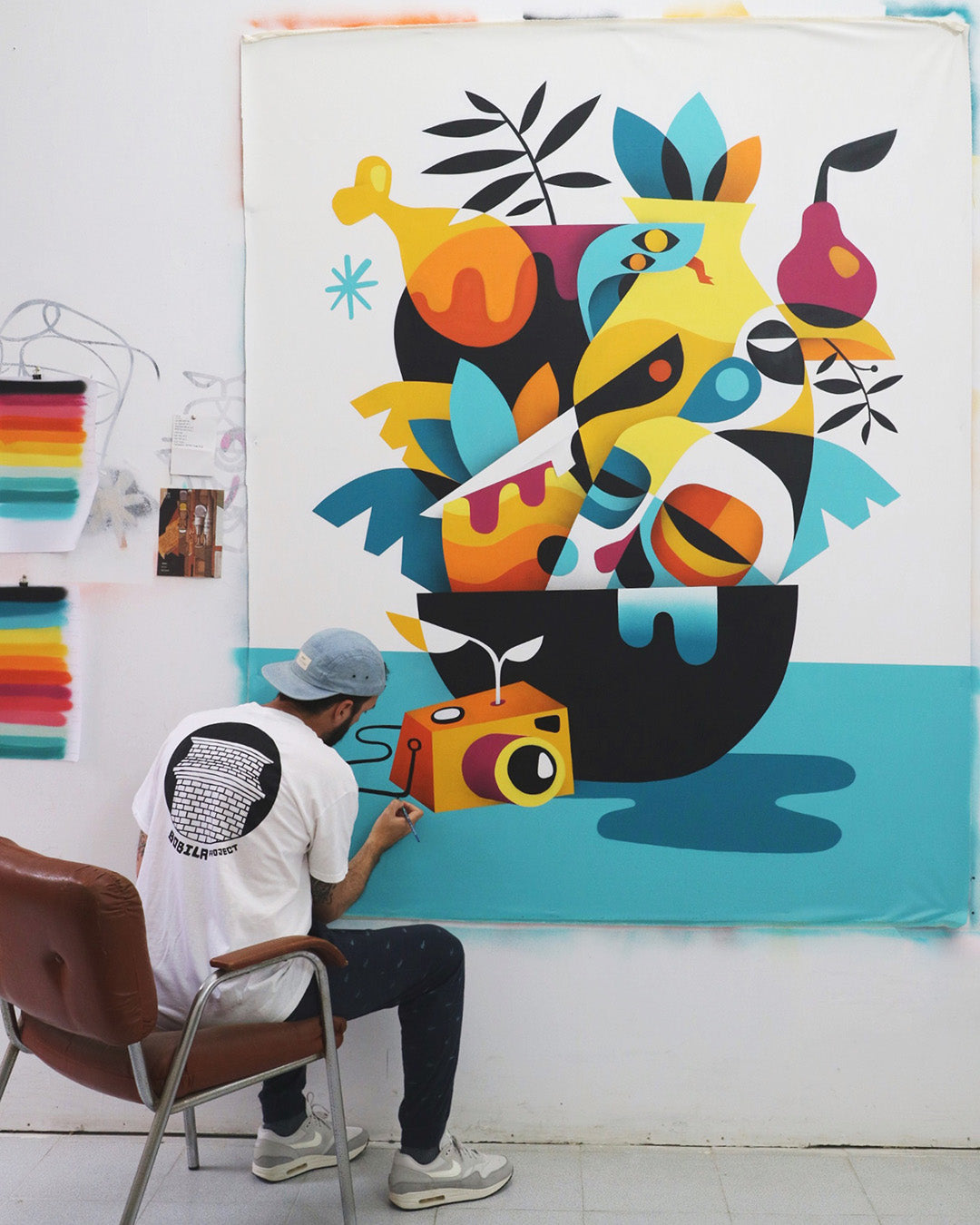
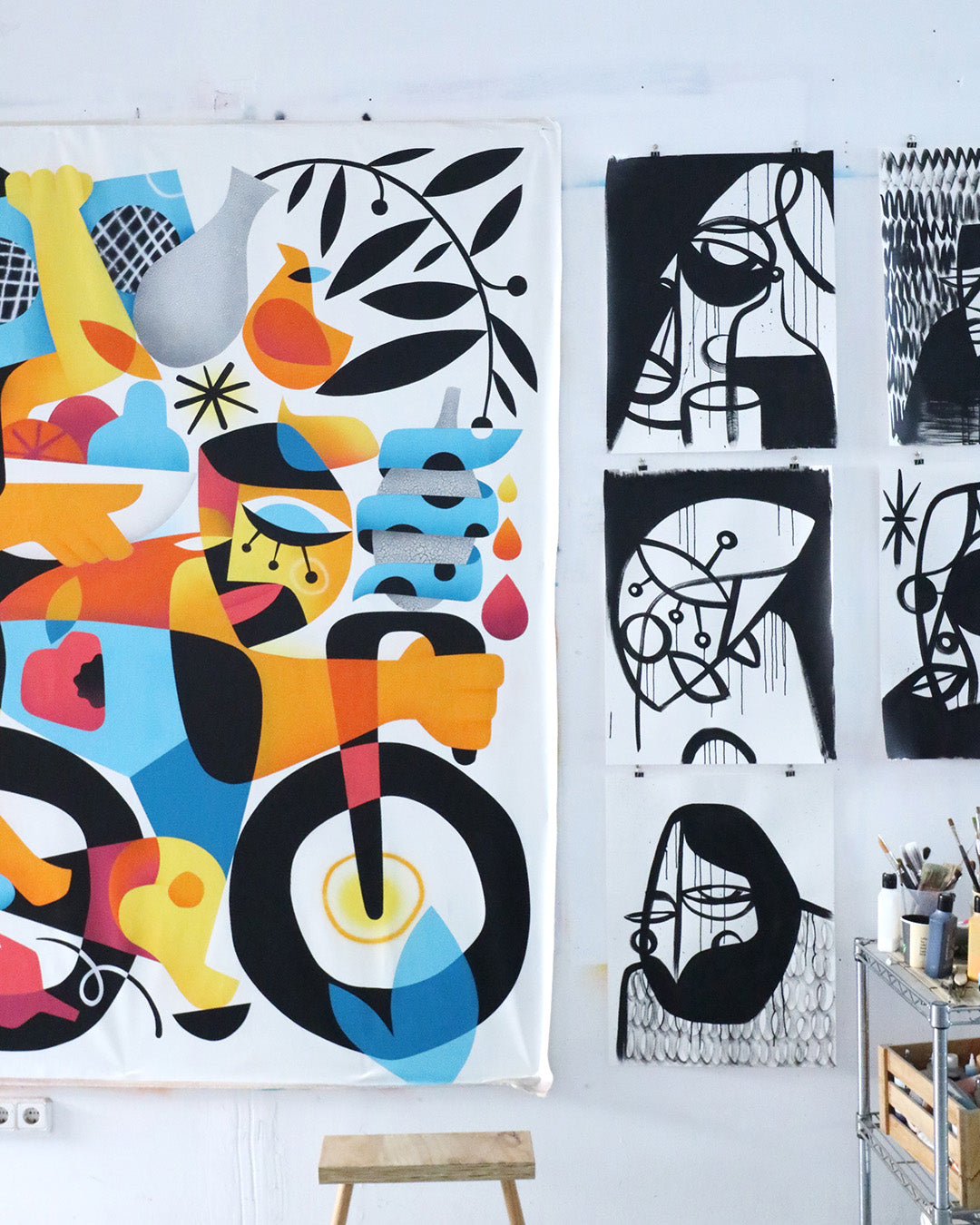
For those that don’t know, what and who is Ruben Sanchez?
Ruben is a kid from Madrid on his forties lucky enough to live out of his art. A curious boy coming from graffiti and skateboarding culture who transmits his concerns, thoughts and stupidities through a visual language.
You were born and raised in Madrid. What was it like growing up there and to what extent did it influence your artistic work?
When I was kid we used to make visits with the school to the museums in Madrid. I didn't realize how lucky we were by then but those masterpieces from El Prado and Reina Sofia just a few kms from my school made a click in my mind somehow. I specially remember a violent painting by Caravaggio, how perfectly painted it was and how it was all about light and expressions. That impression is still with me, at the end I think art is about generating emotions, right? Cubist art on the other hand was very playful to watch, trying to decipher the different elements from the colourful compositions. I found my playground in Cubism later on and I still try to apply those terms to my work nowadays: creating mystery, finding balance in colors, throwing questions and very important, having fun.
Some time ago you moved to the city of Barcelona, Was there a specific reason for moving to there?
At that time (2001) Barcelona was on fire culturally talking and when it comes to skateboarding it was the indisputable Mecca. I did an interview for a design studio and I ended up there as an art director. From there I started working for skateboard companies and kind of started creating my own thing: personal projects, my first paintings, short films, animations, etc.
You're also a passionate Skateboarder. What role does skateboarding in particular play for you?
Well, not as passionate lately haha I wish I had the energy and time I used to have. Skateboarding feels like being part of a religious community: you have your people, your culture, your routines and some kind of principles that are intrinsic to skateboarding like looking at everything as a spot, having fun continuously and that special camaraderie. Also a bit of a Peter Pan syndrome. Some of this inputs can be reflected in my artworks in one way or other. Skateboarding culture in the 90’s was one of a kind and it totally marked my brain. It was inappropriate, it was fun, it was wild.
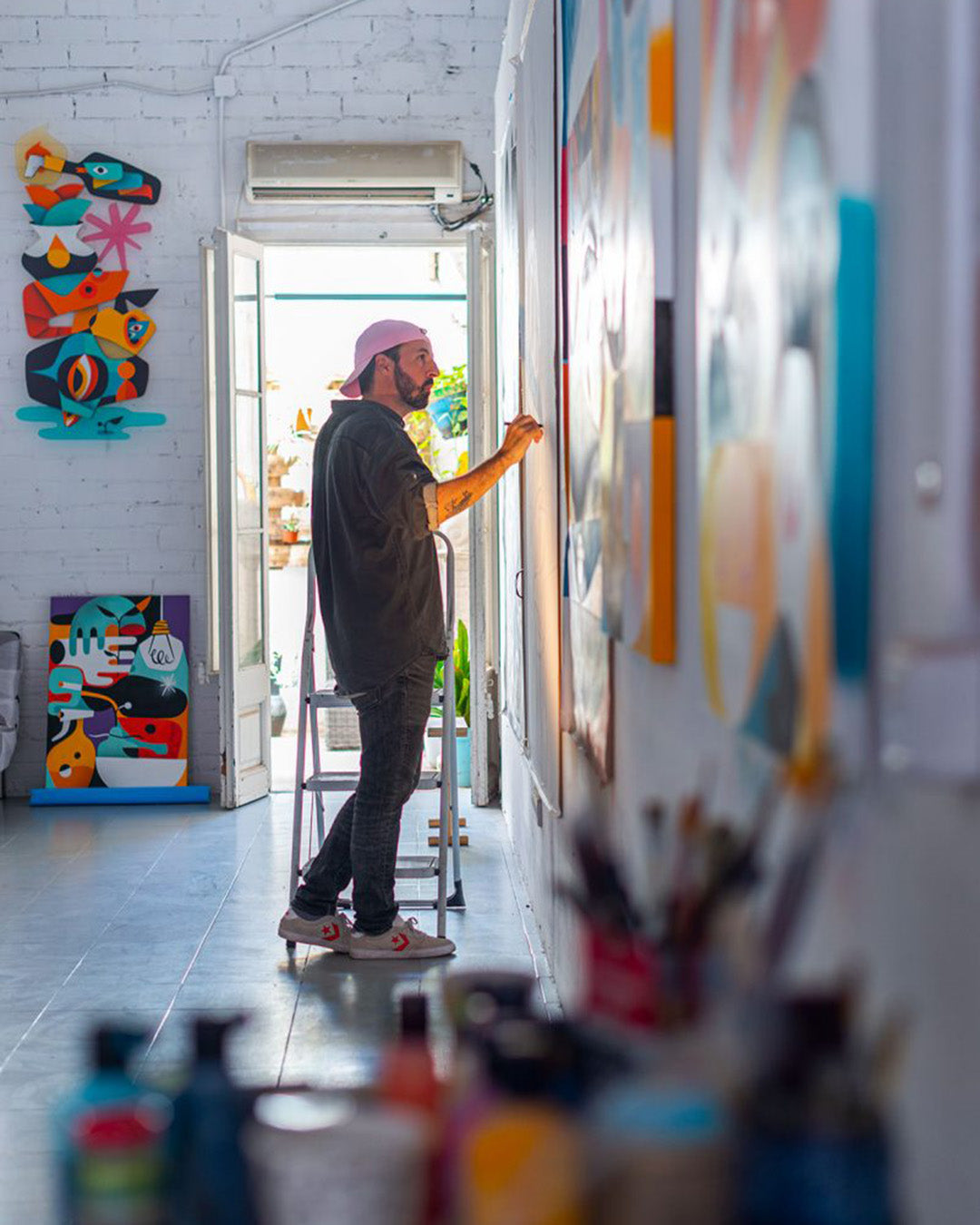
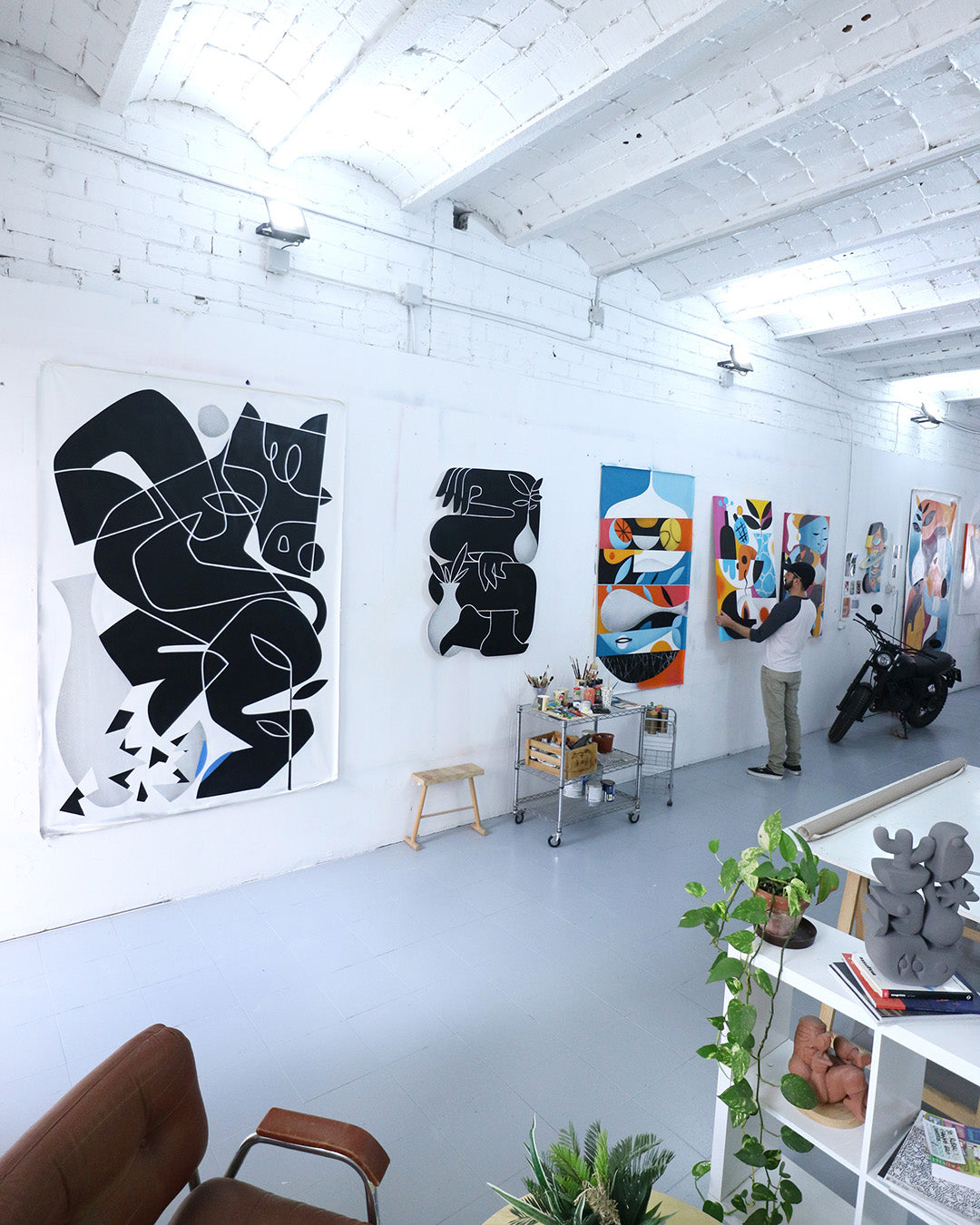
„I find inspiration in human imperfection, in everyday life, in different phobias, in overpopulation, connectivity…“
In addition to exhibitions and walls that you have done in Europe and the USA, you have also implemented many projects in Dubai in the past. Is there a personal connection to the Middle East?
In 2010 or 2011 I went to Lebanon for a group show of Spanish young artists and that was my first contact with the Middle East. I painted in Beirut and did some workshops there. Also explored the country and I found it all very exotic and fun. I also felt related to the culture since we, the Spanish people, were under arab influence for over 700 years. That was my first contact and I loved it.
Two years later I was invited to participate at the Tashkeel art residency in Dubai. It was supposed to be a once year thing but I ended up there for over 3 years. It was a great experience. I did a lot of works, I got to know the other countries in the region and made a big family there of fellow creatives and skaters.
When it comes to art, how do you kick-start the creative process? How do you approach a project?
I have no specific way to do this. I write down all the ideas as they come and then I pick something from the list when I need it. I also have my schemas, books and creative processes that can help me when blocked. For some reason the best ideas normally come when I’m taking a shower at the end of the day, exhausted.
I’ve been doing a lot of freestyle lately which I find exciting too. Nothing planned, I go to the studio and start painting depending on the mood that day. Trying different techniques and feeling free.
How and where do you find inspiration and are there any artistic heroes that have influenced you in your work?
I find inspiration in human imperfection, in everyday life, in different phobias, in overpopulation, connectivity…
My work might seem comfortable and innocuous at first sight because of the colourful compositions but there’s normally a background in which you have to dig.
Art heros? I love the versatility and style of Le Corbusier. Juan Gris, Depero, Matisse, Condo…
Music has always played a big role for us. Is music also important to your creative process? If so, what records are you listening to at the moment?
Oh man… music gotta be there all the time. I can’t work without music. I’m a hiphop type of guy but my playlists are eclectic af. I play flamenco, disco, hardcore from the 90’s, classics from the 80’s, Spanish indie music…
This week I’m playing a lot of 90’s hiphop as usual but also Solea Morente, daughter of the flamenco legend (now deceased) Enrique Morente. She experiments with flamenco and disco rhythms.
Next week who knows, maybe Julio Iglesias!
Thank you Ruben for your time!
